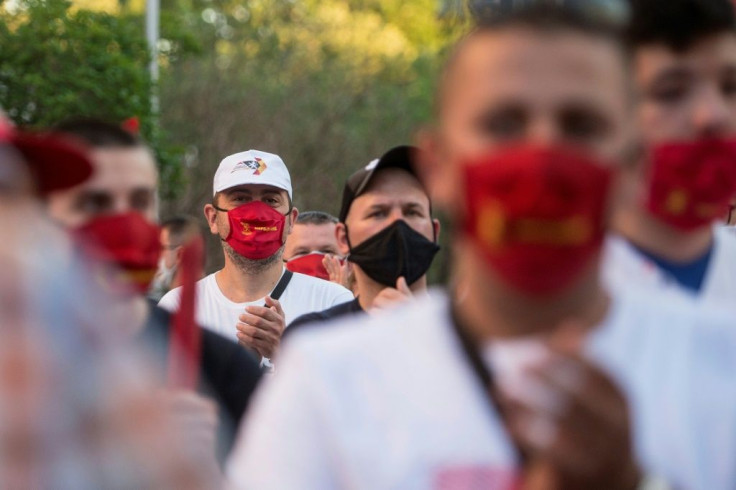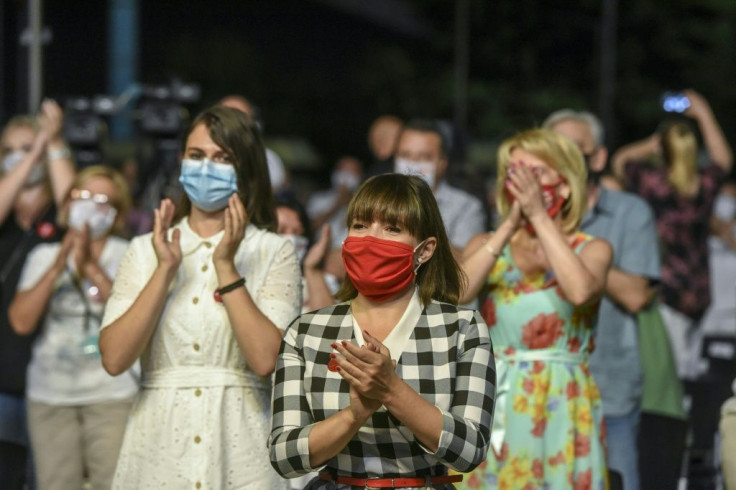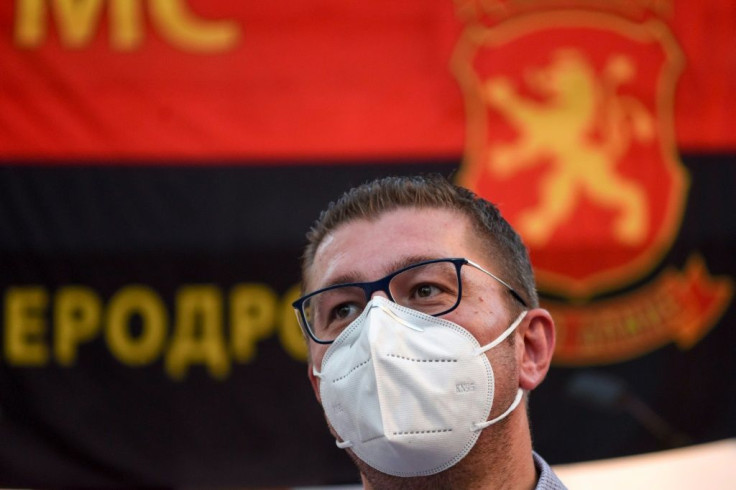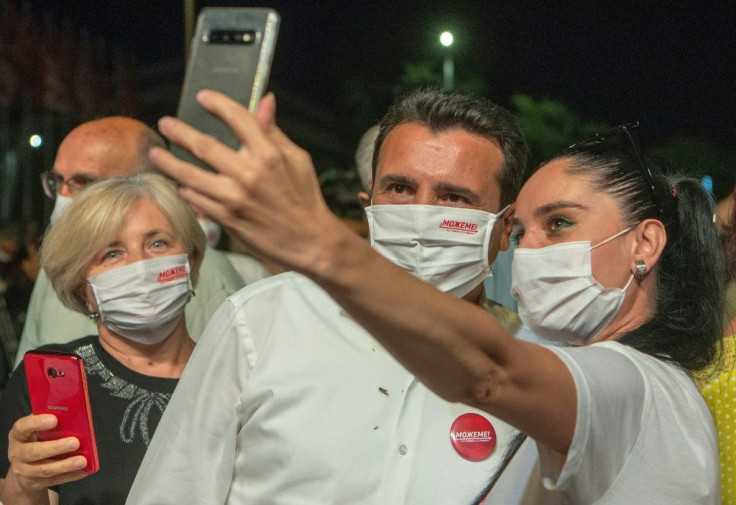North Macedonia Social Democrats Take Narrow Poll Win Over Nationalists
North Macedonia's Social Democrats eked out a razor-thin win over nationalist rivals, official election results showed Thursday, highlighting deep fault lines in a country preparing to start EU membership talks.
The Wednesday vote was the first parliamentary election since the Social Democrats added "North" to the Balkan country's name last year -- a move that ended a decades-old dispute with Greece but was highly controversial at home.

The historic accord ushered the Balkan state into NATO and opened the door to future EU membership.
But critics are still bitter about conceding a part of their identity to appease Athens, which claimed exclusive rights to the name Macedonia for its own neighbouring region.
Lacking an outright majority with only some 35.8 percent of the vote, the centre-left Social Democrats will now face tough coalition talks that could drag on for weeks in order to form a government.

That could postpone stable leadership at a time when coronavirus infections are surging and the country's already weak economy is headed towards a pandemic-triggered recession.
If the Social Democrats fail to form alliances, the right-wing VMRO-DPMNE, just behind with some 34.5 percent of the vote according to the state election commission, would get a chance to build a government.

That party is formally pro-EU but has been highly critical of the name deal, lambasting it as "treason".
"Our path to progress is confirmed," assured Social Democrat leader and former prime minister Zoran Zaev in a victory speech.
"The citizens went out and voted for a clear future, for unity and solidarity, for economic patriotism, for law and order and to choose better present and a better future," he said, adding that his camp had a three seat advantage in the 120-member assembly.

At the opposition headquarters, VMRO-DPMNE secretary general Igor Janusev insisted the vote still showed that "people want change."
Despite the first-place finish, the Social Democrats fared worse than in the last poll in 2016, when they ultimately ended VMRO-DPMNE's nearly decade long reign in power.
There is a perception that beyond the progress with the EU talks, the party has "not delivered on some of the key promises, including justice reforms", said Elena Stavrevska, a political scientist at the London School of Economics.

Low wages, high unemployment and widespread corruption have also been gnawing away at public faith in politics for years.
"We have had enough of promises, now it is time for progress," said 70-year-old Dimitar Sumkovski, a voter in the capital Skopje.
The elections were held to replace a caretaker government that took over after Zaev stepped down six months ago following the EU's initial failure to open accession talks -- a promise Brussels had made in exchange for the name-change and other reforms.
The bloc later gave the green light in March, although Skopje is still waiting for a date to start formal negotiations.
Analysts predicted "difficult" coalition talks and a weak government.
"We are going into a period of hard party negotiations and I think that that government won't be as stable as it was expected," said political analyst Nikola Spasov.
The Social Democrats' top options for partners are parties representing the ethnic Albanian minority, who make up around a quarter of the two million population.
The Democratic Union for Integrity (DUI) was ranked third with around 12 percent of the vote followed by another rival Albanian camp with around 9 percent, according to the election commission.
DUI, the traditional kingmaker, has this year demanded their candidate be named prime minister in exchange for any alliance.
Zaev and the leader of VMRO-DPMNE, Hristijan Mickoski, have previously shot down the proposal as "blackmail".
With nearly 400 deaths from COVID-19 among a population of around two million, the land-locked country has the highest per capita fatality rate in the Western Balkans, according to official data.
On Wednesday, masks were mandatory at polling stations, which closed later than normal to allow for more social distancing.
Those infected with the virus were able to cast ballots earlier in the week, as were the elderly and infirm.






